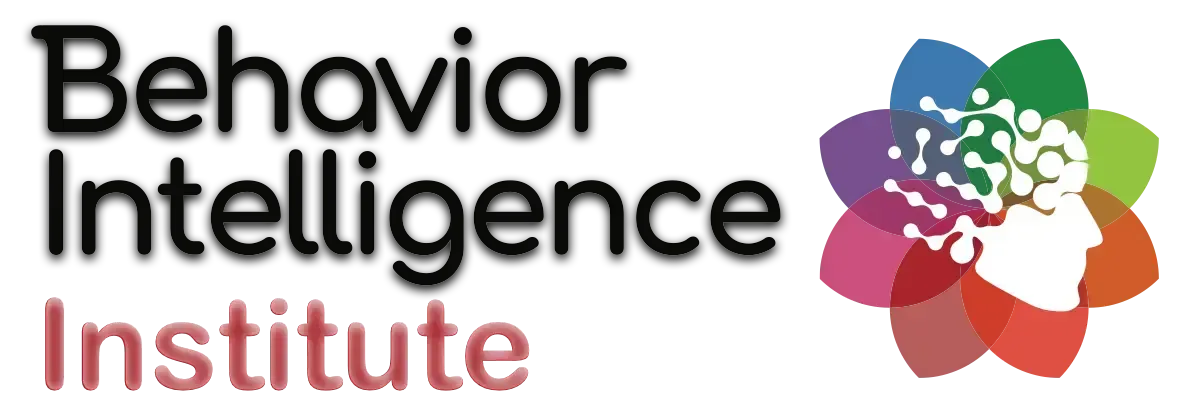Blog
Categories

Scaling Your Business Without Losing Control
Scaling is exciting—but it’s also where many founders lose control. You start to feel the pressure: things slip, quality drops, you lose your edge. This isn’t because you lack systems or intelligence. It’s because growth changes behavior, and if you don’t adapt, the very success you’re chasing can overwhelm you.
I’ve seen this story play out over and over—in my businesses, in my clients’ companies, in global giants. The real secret to sustainable growth isn’t just structure or strategy… it’s Behavior Intelligence.

Why Businesses Stall While Scaling
Most businesses don’t fail because they’re missing a product or don’t know how to sell. They fail because they can’t keep up with their own growth.
They lose culture.
They lose clarity.
They lose client trust.
And it all starts when the founder doesn’t let go.
At the peak—right before the business plateaus or crashes—there’s often a shift. You’re so hands-on that you become the bottleneck. You’re in the weeds, trying to fix things, micromanage, approve every step. But the truth is:
You can’t scale a business if you’re not willing to scale yourself.
Culture is the First Thing You Lose
Culture is your company’s identity. It’s how decisions get made when you’re not in the room. And the faster you grow, the faster you risk losing it.
Take IBM, for example. In the early years, under Lou Gerstner, everything was about culture. But when growth exploded in the '80s, they lost that culture. Then came the crash. They had to reset—rebuild what made them great.
Your job as the leader isn’t just strategy. It’s culture maintenance. That’s behavior. That’s leadership. And if you don’t monitor it, map it, and course-correct, growth will outrun you.
Focus Beats Everything
In my first business—a computer import and distribution company—everyone was selling everything: CDs, software, hardware, you name it. We chose one niche: video conferencing and editing. That clarity got us 40% of the market share. Why? Because we did one thing exceptionally well.
It’s the same for coaches. If you say, “I coach anyone,” that’s not clarity—it’s noise. Find your lane and own it.

Relationships You Can’t Delegate
As you scale, your relationships evolve. At first, you manage all the clients. Then you start to delegate. But there are some relationships only you should manage—especially the high-value ones that shape your brand, feedback loop, and retention.
You can’t disconnect entirely. You need to stay connected at the right level: executive-to-executive, manager-to-manager, client-to-founder. These are strategic relationships.

Document Before You Delegate
Want to scale? Start here:
Pick a function—sales, marketing, delivery.
Ask yourself:
What triggered me to take action?
Who was involved?
What steps did I follow?
What tools did I use?
How did I respond?
Now write it down.
When it’s documented, you can delegate.
When it’s flowcharted, you can automate.
If it stays in your head, it’s your prison.
Systems don’t fix behavior—they expose it.
You’ll see patterns. You’ll see what others can take over. And you’ll see your own habits more clearly.
Not Everyone’s Wired the Same
Some people are naturally great at creating systems. Others need help. That’s okay. These are called “multiple intelligences”—math, music, spatial, language, and so on. If you struggle with this, partner with someone who doesn’t. A good coach can walk you through it.
And when you understand Behavior Intelligence, tools like AccuMatchBI help you see exactly what behaviors you have today—and what needs to shift to scale.
Let Go of Perfection
Here’s the truth:
It takes 20% of the effort to get 80% of the results.
The last 20% takes 80% of the effort.
Stop chasing perfection. If you wait until everything is perfect, you’ll build something that’s obsolete by the time it launches. I’ve seen this happen in banking and software again and again.
Get version one out. Then iterate.
Don’t Let Fear Stop You
Afraid of losing control? Afraid someone might steal your IP? Let it go.
You’ll never scale if you hold everything too tightly. Yes, people might leave. Yes, some might copy you. But that’s how the world works. Every major advancement was built on something before it.
You are not the product. Your system is.

Why Some Leaders Scale and Others Stall
Two leaders.
Same vision.
Same passion.
One scales. The other stalls. Why?
The difference isn’t mindset.
It’s behavior.
The one who scaled:
Delegated effectively
Documented their processes
Trusted their team
Invested in people
Took action
The one who stalled:
Stayed in control
Micromanaged
Complained that others “don’t get it”
Perfected before starting
Made themselves irreplaceable

How to Build Momentum
Momentum isn’t magic. It’s small, consistent wins.
Pick one system a week. Just one.
In a year, you’ve built 52 systems.
Even one a month gives you 12 core systems—more than enough to scale.
If your business needs more than 12 core systems to function, you may need to simplify.
One Hour of Teaching = 20 Hours of Freedom
If you spend one hour teaching a team member something—even if they’re only 50% as good as you—that gives you 20+ hours of their time.
Is it perfect? No.
Is it scalable? Absolutely.
Final Thoughts
You don’t need to change everything at once.
You don’t need to do it alone.
But you do need to start.
Behavior Intelligence is the foundation. Systems are the structure. Culture is the glue. When you align all three, you’ll scale without losing control—and build a business that’s not only bigger, but better.
Copyright 2021 AccuMatch Behavior Intelligence is a division of NLP Profiles Inc. | Privacy Policy



